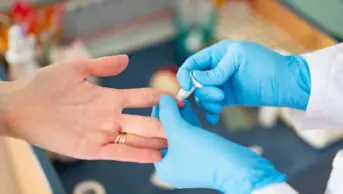
istockphoto.com
It is yet another stain on the reputation of the NHS. Once again, there is a demoralising scandal splashed across the tabloids about a health service whose staff are starting to tire of hearing the phrase: “Never again.”
Gosport War Memorial Hospital joins an infamous line-up of Stafford, Morecambe Bay and the Countess of Chester as the latest hospital to reveal shocking failures of care.
At least 450 patients are thought to have died at the Hampshire hospital after the administration of “inappropriately high” doses of opioids between 1988 and 2000. The report into events at Gosport, published in June 2018, set out how there was a “disregard for human life” and a “culture of shortening the lives of a large number of patients”.
The national media has mainly focused on the role of GP Jane Barton, who was working as a clinical assistant on the geriatrics ward at the time, and her prescribing of diamorphine. But there have also been questions asked about why investigators found no evidence that pharmacists in the hospital raised the alarm.
Neither those working for Portsmouth Hospitals NHS Trust — which provided services to Gosport War Memorial Hospital — or those on the trust’s Drugs and Therapeutics Committee were found to have challenged prescribing practices during those 12 years. This was despite so-called “anticipatory prescribing” being used in cases where patients had been admitted for respite or rehabilitation — not terminal care — and nurses being given the power to administer a wide range of doses of opioids.
This has uncomfortable echoes of an earlier case where former GP Harold Shipman is believed to have killed more than 200 patients at around the same time as the events were unfolding at Gosport. An official report criticised the community pharmacist who practised from the premises next door to Shipman’s Hyde surgery for not scrutinising the prescriptions to ensure they were appropriate for the patient.
However, perhaps holding these cases up to the modern NHS is unfair. Much has changed since these tragedies happened and senior pharmacists speaking to The
Pharmaceutical Journal say they are confident that developments such as electronic patient records and much better recording, auditing and monitoring of controlled drugs mean that dangerous prescribing is much more likely to be picked up now.
And perhaps even more importantly, there has been a culture change since the days of Gosport. Pharmacists now work far more closely with their medical colleagues, and their professional expertise is better valued. Since the Mid-Staffs scandal, all staff working in the NHS have a statutory “duty of candour”, gagging clauses have been removed from contracts and every NHS trust has a ‘Freedom to Speak Up Guardian’ that they can report concerns to.
Indeed, 7,000 staff came forward with concerns to their guardians in 2017/2018, with 1,009 of them including an element of safety or patient care. However, there is more to do as the head of this body admits at least 5% of those reporting concerns said they had some “detriment” as a result and there is little evidence that NHS staff are now more confident in reporting problems.
NHS staff must be able to raise concerns freely otherwise bad practice will go under the radar. When the General Pharmaceutical Council (GPhC)’s response to Gosport was discussed at its July 2018 council meeting, it was argued by one member that the first line of defence for the public is the healthcare staff, then the local NHS organisation’s own systems and only after that can a regulator provide safeguards.
This is correct. The GPhC is working on a response to Gosport by the end of August 2018, looking at the pharmacists’ role in challenging poor prescribing practices, monitoring pharmacy data and how this relates to the duty of candour. In the meantime, the regulator’s guidance on whistleblowing sets out how pharmacists can raise concerns, its importance, and where to go for more advice.
NHS scandals may be great for the tabloids, but they are most certainly not good for patients or those who work in the health service. But, ultimately, no healthcare professional can be forced to blow the whistle.
Inquiries and reports that follow each scandal produce recommendations that can and do make a real difference to the health service. Let’s hope the analyses of events at Gosport will result in another step along the road to a fully open culture that encourages healthcare staff to discuss problems with colleagues’ performance that could prevent anything similar from happening again.


